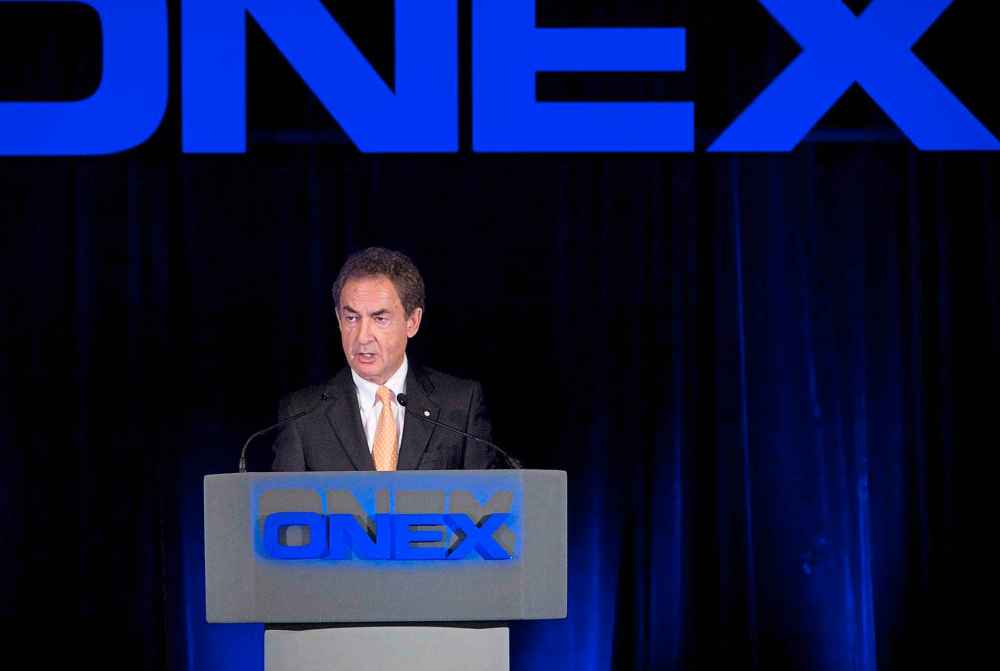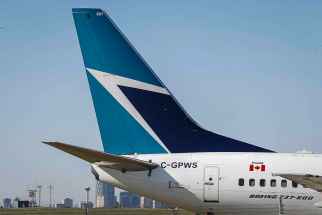‘No downside for Winnipeg,’ in WestJet sale, transportation U of M economist says
Read this article for free:
or
Already have an account? Log in here »
To continue reading, please subscribe:
Monthly Digital Subscription
$0 for the first 4 weeks*
- Enjoy unlimited reading on winnipegfreepress.com
- Read the E-Edition, our digital replica newspaper
- Access News Break, our award-winning app
- Play interactive puzzles
*No charge for 4 weeks then price increases to the regular rate of $19.00 plus GST every four weeks. Offer available to new and qualified returning subscribers only. Cancel any time.
Monthly Digital Subscription
$4.75/week*
- Enjoy unlimited reading on winnipegfreepress.com
- Read the E-Edition, our digital replica newspaper
- Access News Break, our award-winning app
- Play interactive puzzles
*Billed as $19 plus GST every four weeks. Cancel any time.
To continue reading, please subscribe:
Add Free Press access to your Brandon Sun subscription for only an additional
$1 for the first 4 weeks*
*Your next subscription payment will increase by $1.00 and you will be charged $16.99 plus GST for four weeks. After four weeks, your payment will increase to $23.99 plus GST every four weeks.
Read unlimited articles for free today:
or
Already have an account? Log in here »
Hey there, time traveller!
This article was published 13/05/2019 (2405 days ago), so information in it may no longer be current.
OTTAWA — WestJet’s purchase by a private-equity tycoon from Winnipeg could mean more choice for local passengers, a transport observer predicts.
“I don’t really see a downside for Winnipeg, or for the country in general,” said Barry Prentice, a University of Manitoba professor specializing in transportation economics.
Toronto-based Onex Corp. is run by its Winnipeg-born founder Gerry Schwartz who, 20 years ago, tried to purchase Air Canada.

“Gerry Schwartz had wanted an airline for a long time; I guess now he gets one,” Prentice said. “But that’s not the primary reason — I think it’s a good business deal for them.”
WestJet has been adding flights to Europe and Hawaii and purchasing larger planes, as it morphs from a spunky upstart to “another big airline,” Prentice said.
Onex’s purchase makes it easier for the the airline to expand, thanks to the parent firm’s access to capital and international partners. Last year, Ottawa set out a 49 per cent limit to foreign ownership of Canadian airlines.
WestJet recently shifted to a hub-and-spoke model, which means getting Prairie passengers to hubs such as Calgary and sending them abroad from there.
For Winnipeggers, that could mean more options for overseas flights that will likely keep prices consistent, Prentice said.
“I think it will bring a lot of strength to the company,” said Prentice. “More competition is always better for consumers.”
Shortly after its first flight in 1996, WestJet let employees buy shares in the company, a sign of loyalty the airline used to advertise. But employees unionized last year, as the airline outsourced work and launched budget offshoots. Pilots threatened to strike a year ago.
The Air Line Pilots Association said there’s been “a drastic turnaround” since then.
“Onex won’t micromanage; the WestJet brand will continue,” said Dave Colquhoun, adding that “a fair number of Winnipeggers” fly WestJet planes.
The airline’s flight-attendant union CUPE 7040 said news of Onex’s takeover came shortly before midnight, and that the firm told unions it predicts no job losses.

“It was a surprise, to all of the frontline staff,” said union head Chris Rauenbusch. “We’re formulating a very good working relationship.”
While Winnipeg is among WestJet’s focus cities, it’s not a hub where a large chunk of its employees are based.
Passenger-rights advocate Gábor Lukács said the company’s quality has slipped in recent years, getting “very combative” over issues like delayed baggage claims.
“Their attitude seems to be much in the direction of race-to-the-bottom, and that’s quite troubling,” Lukács said. “I wonder if this had played in investors’ findings.”
Onex has held multiple aviation firms over the years, from manufacturing jets and aircraft parts to airline food providers. But its 1999 attempt to take over and merge Air Canada and now-defunct Canadian Airlines was quashed by a Quebec court.
Schwartz was not available Monday for a interview.
dylan.robertson@freepress.mb.ca
History
Updated on Monday, May 13, 2019 7:04 PM CDT: Adds photo
Updated on Monday, May 13, 2019 10:20 PM CDT: Fixes typo










